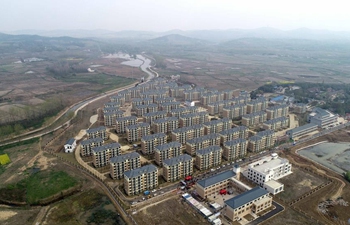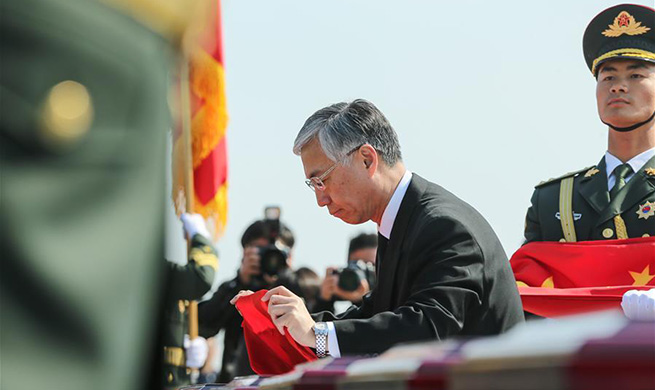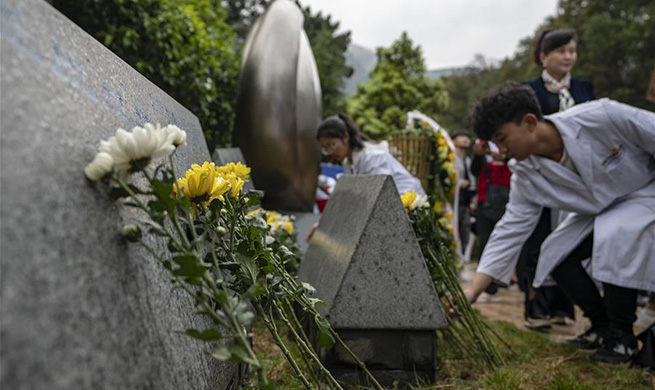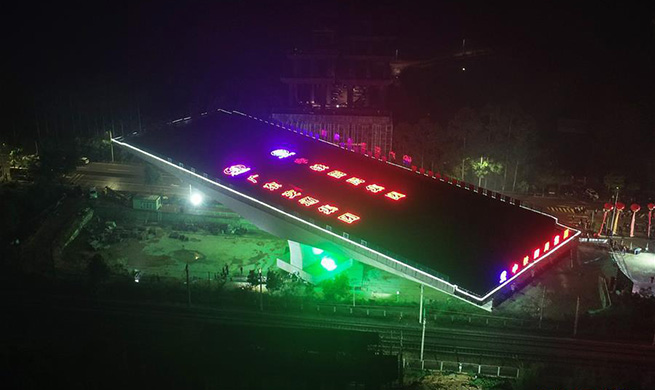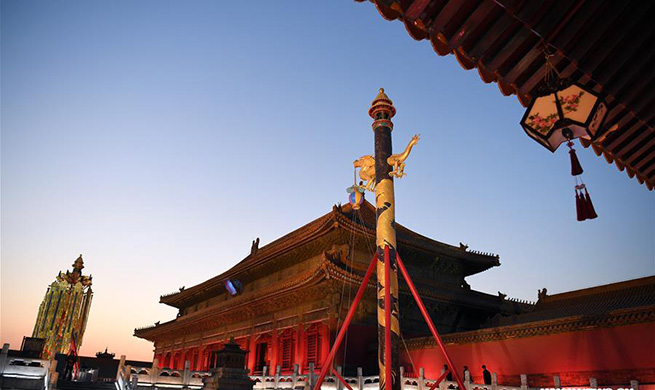by Keren Setton
JERUSALEM, April 3 (Xinhua) -- Just days before Israelis head to the polls, voters are as divided as ever and experts expect the country is heading for tumulus times which might actually result in another general election within the next year.
This election, in which Israeli Prime Minister Benjamin Netanyahu is seeking his 4th consecutive term, is seen as a critical one that will determine the future of Israel and the face of its democracy.
The Israeli system is a parliamentary one, which means a coalition government needs to be formed in order to get the majority of the 120 parliament seats.
Netanyahu's main opponent is the leader of the Blue and White party Benny Gantz. Even in polls which show Gantz's party taking the lead, Netanyahu and his Likud party consistently have enough mandates in their bloc that will enable them to form a government.
"It's very hard to bet against Netanyahu. Netanyahu, perhaps by a very very thin margin, will be the most likely person to put together a coalition," said Gerald Steinberg from the Political Science Department at Bar-Ilan University.
The current campaign has been largely about the leadership of Netanyahu. His most recent tenure in office has been marred by corruption scandals which have recently culminated into a decision by the Israeli attorney general to indict him on several allegations pending a hearing expected by July of this year.
According to Israeli law, a prime minister must resign only after all appeals have been exhausted. This could mean Netanyahu will be conducting a trial as a sitting premier. It is widely believed that in such a case, he will have difficulty finding coalition partners to sit with.
"It's going to be a very turbulent political season and we might end up with another election not that far in the horizon," said Gayil Talshir from the Political Science Department at the Hebrew University in Jerusalem.
While Israel is dealing with various critical issues - security, the future of the Israeli-Palestinian conflict, economy and the high cost of living in the country, large socio-economic gaps and an increasingly fragmented society, the election is focused on Netanyahu and his leadership style.
Many of his faithful voters adopt an "all or nothing" approach when it comes to Netanyahu. In polls published throughout the campaign, the results have been consistently in favor of him when the public has been asked who is more suited to lead the country.
After a decade in office, if re-elected, there is a chance for him to become Israel's longest serving prime minister. His popularity, skillful politics and undeniable achievements make it difficult for any possible successor.
For Netanyahu's opposition, both in the political arena and amongst the people, the allegations of corruption against him should be enough to send him home.
"He's doing terrible things to the country, I think that he's corrupt even if it's not provable," said Michael Sager of Jerusalem.
Under Netanyahu, the Israeli economy has strengthened and bilateral ties with many countries, including China, have improved. Israel has solidified its status as an innovation hub. He has also largely averted wars on both of Israel's volatile borders in the north and south of the country.
The American recognition of Jerusalem as Israel's capital and the Golan heights as Israeli sovereign territory may be controversial on an international level, but are at the consensus of most Israelis - left or right. His close relationship with U.S. President Donald Trump has been used by Netanyahu repeatedly throughout the campaign.
Relations between Israel and moderate Arab countries have been fortified under the Israeli premier and this cannot be underestimated in the delicate balance of power of the Middle East.
Still, there is criticism of his hostility towards the media and his attacks on the police and the judicial system as he went on the offensive to defend his reputation.
Critics say that his attacks against law enforcement are undermining Israeli democracy. During his last term, a contentious Nation-State bill was passed which gives Jews preferred status in the country. He has polarized the Arab minority in Israel which account for almost 20% of the country's population.
"The last Netanyahu government was very right wing and very conservative," Talshir said, adding "the majority of the people are not sure one week before the elections what they are going to vote and what kind of Israel they want to see after the elections."
Should Netanyahu form the next government, his fate will be in the hands of the judicial system. He will try to claim that any move against him will be an undemocratic attempt to oust him from power after winning the popular vote.
"I think it's almost definite that there will be corruption trials against Netanyahu after the elections. If he's elected, it will be a very complicated system," Steinberg told Xinhua.
"Israel is not going to have a period of stability whatever the result of the elections are and we could be back in elections in 6 months," he said.
What seems certain is that the Israeli political system is headed for some rocky times. With polls showing still many undecided voters just days ahead and many small parties at the borderline of the threshold to enter the Israeli Knesset, the forecast is cloudy with thunderstorms, and perhaps another election ahead.




